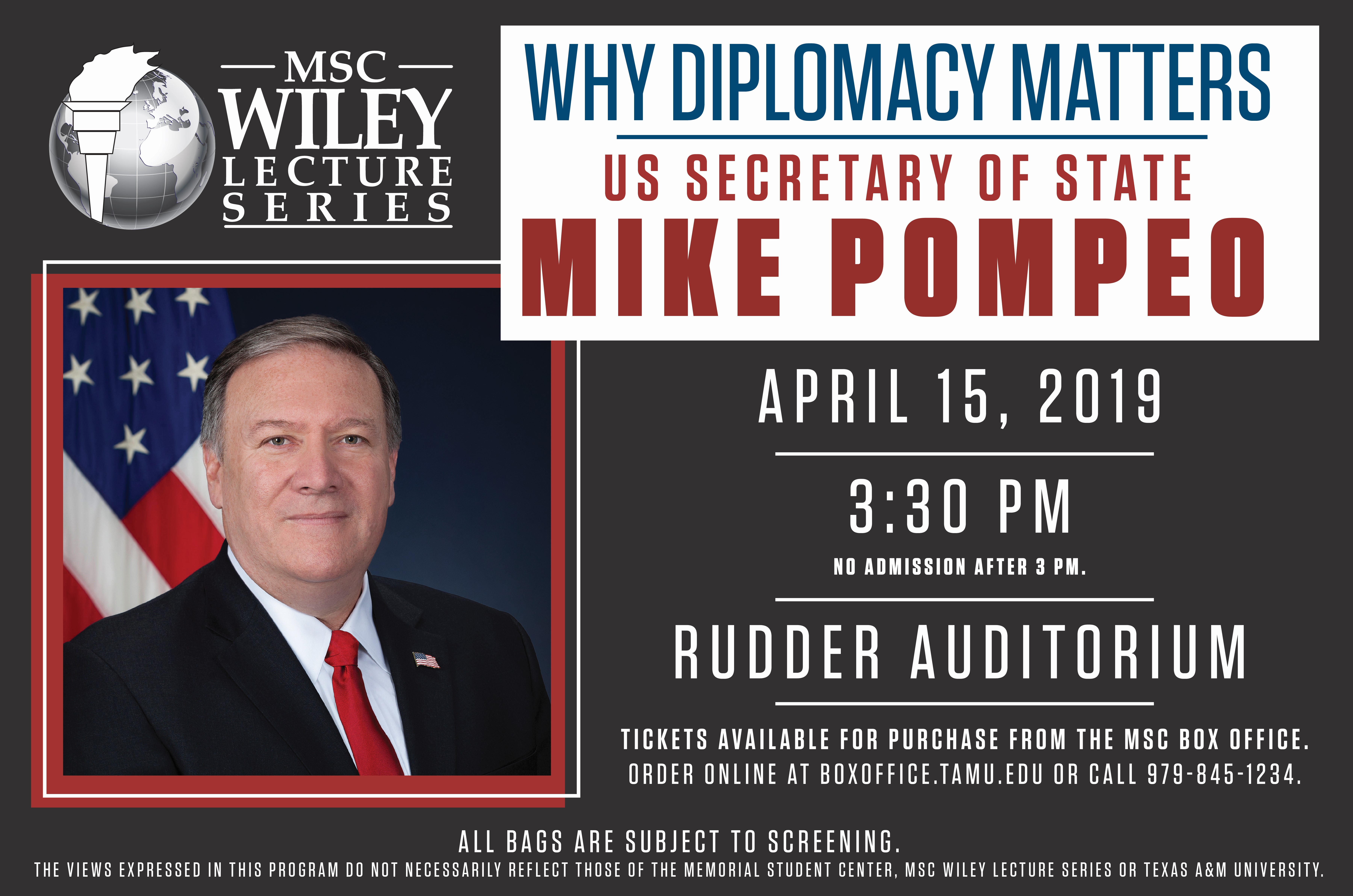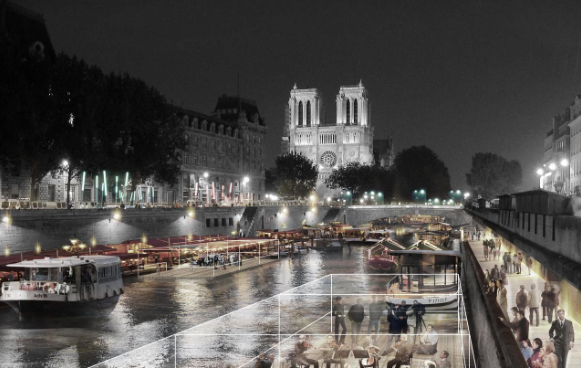The organization's translations are regularly quoted by major international newspapers, and its work has generated strong criticism and praise. Critics have accused MEMRI of producing inaccurate, unreliable translations with undue emphasis and selectivity in translating and disseminating the most extreme views from
Arabic and
Persian media, which portray the Arab and
Muslim world in a negative light, while ignoring moderate views that are often found in the same media outlets. Other critics charge that while MEMRI does sometimes translate pro-US or pro-democracy voices in the regional media, it systematically leaves out intelligent criticism of Western-style democracy, US and Israeli policy and secularism.
[44][45][46][47]
MEMRI's work has been criticized on three grounds: that their work is biased; that they choose articles to translate selectively so as to give an unrepresentative view of the media they are reporting on; and that some of their translations are inaccurate.
[48] MEMRI has responded to the criticism, stating that their work is not biased; that they in fact choose representative articles from the Arab media that accurately reflect the opinions expressed, and that their translations are highly accurate.
[48]
Accusations of bias
Brian Whitaker, the Middle East editor for
The Guardian newspaper at the time, wrote in a public email debate with Carmon in 2003, that his problem with MEMRI was that it "poses as a research institute when it's basically a propaganda operation".
[48]Earlier, Whitaker had charged that MEMRI's role was to "further the political agenda of Israel." and that MEMRI's website does not mention Carmon's employment for Israeli intelligence, or Meyrav Wurmser's political stance, which he described as an "extreme brand of Zionism".
[44] Carmon responded to this by stating that his employment history is not a secret and was not political, as he served under opposing administrations of the Israeli government and that perhaps the issue was that he was Israeli: "If your complaint is that I am Israeli, then please say so." Carmon also questioned Whitaker's own biases, wondering if Whitaker's is biased in favor of Arabs – as his website on the Middle East is named "Al-Bab" ("The Gateway" in Arabic) – stating: "I wonder how you would judge an editor whose website was called "Ha-Sha-ar" ("The Gateway" in Hebrew)?
[48]
Norman Finkelstein has described MEMRI as "a main arm of Israeli propaganda". In 2006, Finkelstein accused MEMRI of editing a television interview he gave in Lebanon in order to falsely impute that he was a Holocaust denier. In an interview with the newspaper
In Focus in 2007, he said MEMRI uses "the same sort of propaganda techniques as the Nazis" and "take things out of context in order to do personal and political harm to people they don't like".
[49]
Selectivity
Several critics have accused MEMRI of selectivity. They state that MEMRI consistently picks the most extreme views for translation and dissemination, which portray the Arab and Muslim world in a negative light, while ignoring moderate views that are often found in the same media outlets.
[44][45][46][47] Juan Cole, a professor of Modern Middle East History at the University of Michigan, argues MEMRI has a tendency to "cleverly cherry-pick the vast Arabic press, which serves 300 million people, for the most extreme and objectionable articles and editorials ... On more than one occasion I have seen, say, a bigoted Arabic article translated by MEMRI and when I went to the source on the web, found that it was on the same op-ed page with other, moderate articles arguing for tolerance. These latter were not translated."
[50] Former head of the CIA's counterintelligence unit,
Vincent Cannistraro, said that MEMRI "are selective and act as propagandists for their political point of view, which is the extreme-right of Likud. They simply don't present the whole picture."
[51][52] Laila Lalami, writing in
The Nation, states that MEMRI "consistently picks the most violent, hateful rubbish it can find, translates it and distributes it in email newsletters to media and members of Congress in Washington."
[45] As a result, critics such as UK Labour politician
Ken Livingstone state that MEMRI's analyses are distortion.
[53][54]
A report by
Center for American Progress, titled "Fear, Inc.: The Roots of the
Islamophobia Network in America" lists MEMRI as promoting Islamophobic propaganda in the USA through supplying selective translations that are relied upon by several organisations "to make the case that Islam is inherently violent and promotes extremism."
[55]
MEMRI argues that they are quoting the government-controlled press and not obscure or extremist publications, a fact their critics acknowledge, according to Marc Perelman: "When we quote
Al-Ahram in Egypt, it is as if we were quoting
The New York Times. We know there are people questioning our work, probably those who have difficulties seeing the truth. But no one can show anything wrong about our translations."
[51]
In August 2013, the Islamic Da'wah Centre of South Australia questioned the "reliability, independence and veracity" of the Middle East Media Research Institute after it posted what the centre called a "sensational de-contextualised cut-and-paste video clip ... put together in a suggestive manner" of a sermon by the Sheikh Sharif Hussein on an American website. According to the two-minute video, which was a heavily condensed version of the Sheikh's 36-minute speech delivered in
Adelaide on 22 March, Hussein called Australian and American soldiers "crusader pigs" and stated "O Allah, count the Buddhists and the Hindus one by one. O Allah, count them and kill them to the very last one." According to MEMRI's translation, he also described US President
Barack Obama as an "enemy of Allah, you who kiss the shoes and feet of the Jews" and predicted that "The day will come when you are trampled upon by the pure feet of the Muslims."
[56] MEMRI's rendition moved leading Liberal senator
Cory Bernardi to write to the Police Commissioner charging that under Australia's
anti-terrorism laws, the video clip was "hate speech", and requesting that action be taken against Hussein. The South Australian Islamic Society and the Australian Buddhist Councils Federation also condemned Hussein's speech. Widespread calls from the public for the deportation of Hussein and his family followed news reports of the video. A police spokeswoman stated "Police will examine the entire content of the sermon to gain the full context and determine whether any crime has been committed." Hussein himself declined any comment on the contents of the video. However, the Da'wah Centre charged that by omitting the context of Hussein's statements, MEMRI had distorted the actual intent of the speech. While admitting that the Sheikh was emotional and used strong words, the Centre stated that the speech was delivered in relation to rape cases in Iraq, the birth defects due to use of
depleted uranium and the
Burmese Buddhist massacre. This, the Centre claimed, was omitted from the edited MEMRI video.
[57][58][59][60][61]
Alleged translation inaccuracy
See also:
Tomorrow's Pioneers § Translation controversy
MEMRI's translations are considered "usually accurate" though occasionally disputed and highly selective in what it chooses to translate and in which context it puts things,
[62] as in the case of MEMRI's translation of a 2004
Osama bin Laden video, which MEMRI defended, which it said indicated that any individual US state that did not vote for President
George W. Bush"guarantees its own security," implying a threat against those states that did vote for him;
[63] outside translators, and the original article that the MEMRI alert claimed to correct, indicated that Bin Laden was threatening
nations, not individual US states.
[63][48][54][64][65]
Following the
7 July 2005 London bombings,
Al Jazeera invited
Hani al-Sebai, an
Islamist living in
Britain, to take part in a discussion on the event. Al-Sibai is listed as a Specially Designated National by the US Treasury Department because of alleged support for al-Qaida.
[66] For one segment of the discussion in regard to the victims, MEMRI provided the following translation of al-Sebai's words:
The term "civilians" does not exist in Islamic religious law. Dr Karmi is sitting here, and I am sitting here, and I'm familiar with religious law. There is no such term as "civilians" in the modern Western sense. People are either at war or not.
[67]
Al-Sebai subsequently claimed that MEMRI had mistranslated his interview, and that among other errors, he had actually said:
There is no term in Islamic jurisprudence called "civilians". Dr Karmi is here sitting with us, and he's very familiar with the jurisprudence. There are fighters and non-fighters. Islam is against the killing of innocents. The innocent man cannot be killed according to Islam.
[53]
By leaving out the condemnation of the "killing of innocents" entirely, Mohammed El Oifi, writing in
Le Monde diplomatique, argued that this translation left the implication that civilians (the innocent) are considered a legitimate target.
[53] Several British newspapers subsequently used MEMRI's translation to run headlines such as "Islamic radical has praised the suicide bomb attacks on the capital"
[68] prompting al-Sebai to demand an apology and take legal action. In his view, MEMRI's translation was also "an incitement to have me arrested by the British authorities".
[69]
Halim Barakat described MEMRI as "a propaganda organization dedicated to representing Arabs and Muslims as anti-Semites".[
citation needed] Barakat claims an essay he wrote for the
Al-Hayat Daily of
London titled "The Wild Beast that Zionism Created: Self-Destruction", was mistranslated by MEMRI and retitled as "Jews Have Lost Their Humanity". Barakat further stated "Every time I wrote '
Zionism', MEMRI replaced the word by '
Jew' or '
Judaism'. They want to give the impression that I'm not criticizing Israeli policy, but that what I'm saying is
anti-Semitic."
[49][52][53] According to Barakat, he was subject to widespread condemnation from faculty and his office was "flooded with hatemail".
[70][71] Fellow Georgetown faculty member
Aviel Roshwald accused Barakat in an article he published of promoting a "demonization of Israel and of Jews".
[72] Supported by Georgetown colleagues, Barakat denied the claim,
[73] which Roshwald had based on MEMRI's translation of Barakat's essay.
[72]
In 2007, CNN correspondent Atika Shubert and Arabic translators accused MEMRI of mistranslating portions of a Palestinian children's television program:
Media watchdog MEMRI translates one caller as saying – quote – 'We will annihilate the Jews'," said Shubert. "But, according to several Arabic speakers used by CNN, the caller actually says 'The Jews are killing us.'
[74][75]
CNN's
Glenn Beck later invited Yigal Carmon onto his program to comment on the alleged mistranslation. Carmon criticized the CNNs translators' understanding of Arabic, stating: "Even someone who doesn't know Arabic would listen to the tape and would hear the word 'Jews' is at the end, and also it means it is something to be done to the Jews, not by the Jews. And she [Octavia] insisted, no the word is in the beginning. I said: 'Octavia, you just don't get it. It is at the end.'" Carmon was referring to Arabic native speaker
Octavia Nasr, a Greek-orthodox Christian from Lebanon, who was later fired by CNN for a tweet praising late Ayatollah
Hussein Fadlallah.
[76] Brian Whitaker, a
Middle East editor for the British
Guardian newspaper later pointed out that the word order in Arabic is not the same as in English: "the verb comes first and so a sentence in Arabic which literally says 'Are shooting at us the Jews' means 'The Jews are shooting at us.'"
[62]
Naomi Sakr, a professor of Media Policy at the
University of Westminster has charged that specific MEMRI mistranslations, occurring during times of international tension, have generated hostility towards Arab journalists.
[77]
Brian Whitaker wrote in a blog for
The Guardian newspaper that in the translation of the video, showing Farfour eliciting political comments from a young girl named Sanabel, the MEMRI transcript misrepresents the segment. Farfour asks Sanabel what she will do and, after a pause says "I'll shoot". MEMRI attributed the phrase said by Farfour, "I'll shoot", as the girl's reply while ignoring her actual reply of "I'm going to draw a picture".
[78] Whitaker and others commented that a statement uttered by the same child, "We're going to [or want to] resist", had been given an unduly aggressive interpretation by MEMRI as "We want to fight". Also, where MEMRI translated the girl as saying the highly controversial remark "We will annihilate the Jews", Whitaker and others, including
Arabic speakers used by CNN, insist that, based on careful listening to the low quality
video clip, the girl is saying "Bitokhoona al-yahood", variously interpreted as "The Jews [will] shoot us"
[78] or "The Jews are killing us."
[79]
MEMRI stands by their translation of the show, saying: "Yes, we stand by the translation by the very words, by the context, by the syntax, and every measure of the translation."
[79]
In response to accusations of inaccuracies and distortion, Yigal Carmon, said:
As an institute of research, we want MEMRI to present translations to people who wish to be informed on the ideas circulating in the Middle East. We aim to reflect reality. If knowledge of this reality should benefit one side or another, then so be it.[
citation needed]
In an email debate with Carmon, Whitaker asked about MEMRI's November 2000 translation of an interview given by the
Grand Mufti of Jerusalem to
Al-Ahram al-Arabi. One question asked by the interviewer was: "How do you deal with the Jews who are besieging al-Aqsa and are scattered around it?" which was translated as: "How do you feel about the Jews?" MEMRI cut out the first part of the reply and combined it with the answer to the next question, which, Whitaker claimed, made "Arabs look more anti-Semitic than they are".[
citation needed] Carmon admitted this was an error in translation but defended combining the two replies, as both questions referred to the same subject. Carmon rejected other claims of distortion by Whitaker, saying: "it is perhaps reassuring that you had to go back so far to find a mistake ... You accused us of distortion by omission but when asked to provide examples of trends and views we have missed, you have failed to answer." Carmon also accused Whitaker of "using insults rather than evidence" in his criticism of MEMRI.
[48]
Whitaker claims that although Memri's translations are usually accurate, they are selective and often out of context. He stated: "When errors do occur, it's difficult to attribute them to incompetence or accidental lapses ... there appears to be a political motive."
[62]
Response by MEMRI
MEMRI responds to criticism by saying that the media had a tendency to whitewash statements of Arab leaders, and regularly defends its translations as being representative of actual ME viewpoints, even when the translations themselves are disputed: "MEMRI has never claimed to 'represent the view of the Arabic media', but rather to reflect, through our translations, general trends which are widespread and topical."
[48]
Praise for MEMRI
John Lloyd has defended MEMRI in the
New Statesman:
One beneficial side effect of the focus on the Middle East is that we now have available much more information on the discourse of the Arab world. The most powerful medium for this is (naturally) a Washington-based think-tank, the Middle East Media Research Institute (MEMRI), started in 1998 by the former Israeli intelligence officer and Arabist Yigal Carmon. MEMRI aimed to bring the previously largely enclosed and unknown Arab talk about the west to western eyes and ears: it is a sobering experience to read on the internet MEMRI's vast store of translations from many media, and to note how much of what is written is conspiratorial, vicious and unyieldingly hateful. MEMRI and Carmon have been accused of selecting the worst of a diverse media: however, the sheer range of what is available weakens that criticism, as does support for the initiative by Arab liberals. The
Iraqi exile
Kanan Makiya, for example, wrote in the spring 2002 issue of
Dissent that Arab intellectuals have allowed a mixture of victimhood and revenge to take hold of popular culture, with few if any dissenting voices.
[80]
Thomas L. Friedman, a political opinion columnist for
The New York Times, has praised MEMRI, and has credited MEMRI with helping to "shine a spotlight on hate speech wherever it appears".
[4] Friedman has written in
The New York Times that "what I respect about Memri is that it translates not only the ugly stuff but the courageous liberal, reformist Arab commentators as well." In addition, he has cited MEMRI's translations in his op-eds.
[81]
Brit Hume of
Fox News said, "These people tell you what's going on in pulpits and in the state-controlled TV. If you have indoctrination, it's important to know about it."
[82][
verification needed]
One of MEMRI's strongest supporters is
Jay Nordlinger, the managing editor of
National Review, who wrote in 2002:
Wading or clicking through MEMRI's materials can be a depressing act, but it is also illusion-dispelling, and therefore constructive. This one institute is worth a hundred reality-twisting Middle Eastern Studies departments in the U.S. Furthermore, listening to Arabs—reading what they say in their newspapers, hearing what they say on television—is a way of taking them seriously: a way of not condescending to them, of admitting that they have useful things to tell us, one way or the other. Years ago, Solzhenitsyn exhorted, "Live not by lies." We might say, in these new circumstances, "Live not by ignorance about lies, either." Anyone still has the right to avert his eyes, of course. But no one can say that that is not a choice.
[83]
Nordlinger also wrote:
It seemed imperative to learn more about the Arabs—to learn, for example, what they were saying to one another, in their media, in their schools, and in their mosques, The Arab world had always been dark this way; it needed to come into the light. And this is where
www.memri.org proved "invaluable", as everyone has said ... In fact "invaluable" was written so often before MEMRI's name that one could have been forgiven for thinking the word was part of the name. MEMRI served as an antidote to darkness, as a way not to be ignorant.
[83]
According to Nordlinger, one of MEMRI's early notable successes was its exposure of Muhammad al-Gamei'a. Al-Gamei'a had served as head of the
Islamic Cultural Center of New York and as
Al-Azhar University's representative to the United States and frequently participated in interreligious services. However, upon returning to Egypt in October 2001, Al-Gamei'a gave an interview to an Islamic website in which he stated, among other things, that Israel was responsible for 9/11 and that "If it became known to the American people, they would have done to the Jews what Hitler did!" and that "[the Jews] are riding on the back of the world powers."
[83][84][85][86][87] MEMRI's translation of Al-Gamei'a's interview was later cited by
The New York Times, which hired two independent translators to confirm the MEMRI translation.
[88] Nordlinger wrote that MEMRI's work has "never been found to be anything but honest, accurate, and meticulous" and that because of MEMRI's work: "the sheikh was exposed."
[83]
Moreover, the
Anne Frank Foundation lists MEMRI along the
Nizkor project as "websites with reliable information about Holocaust denial and Holocaust deniers".
[89]











